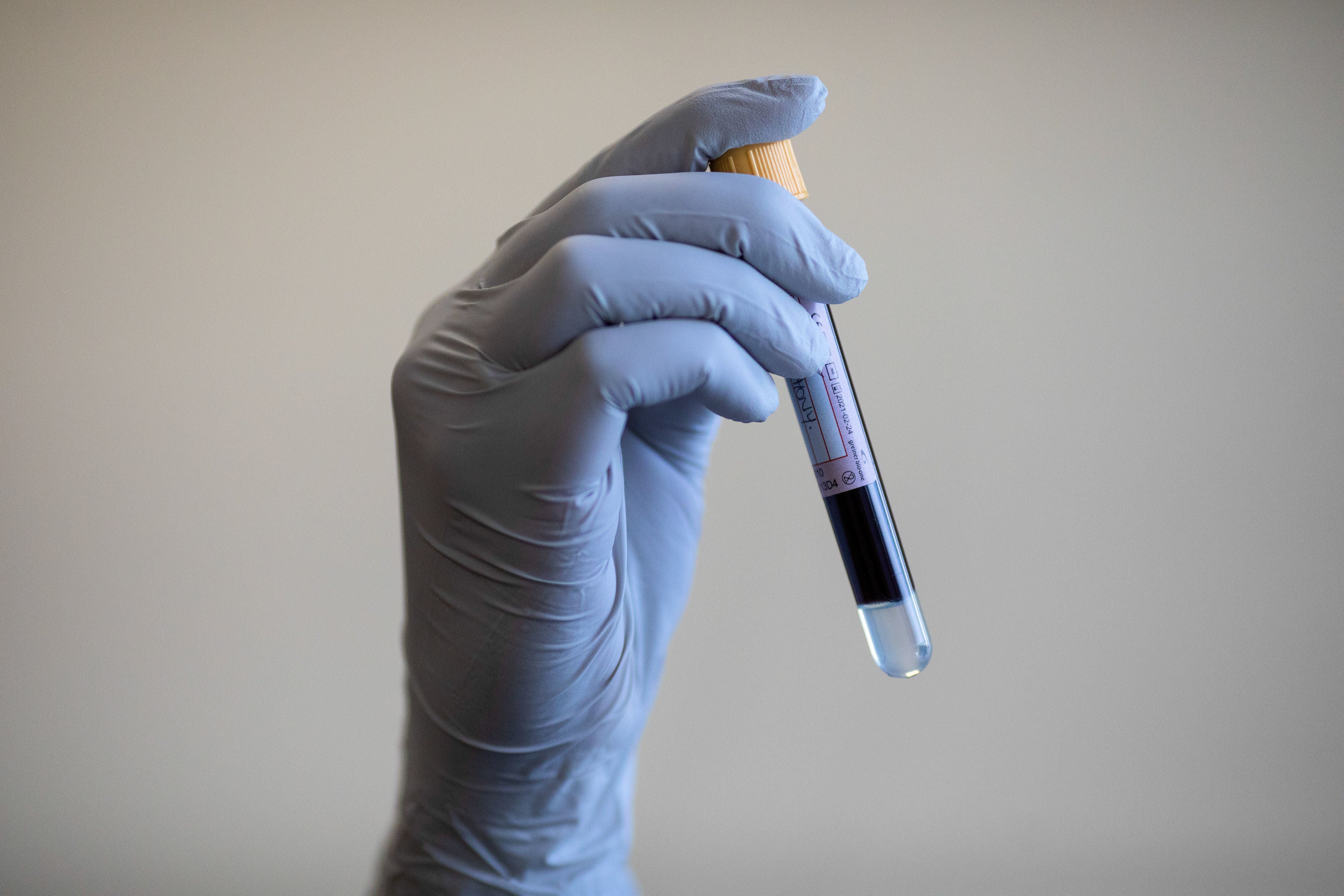New blood test can find 50 types of cancer
Test is being piloted by NHS England

Your support helps us to tell the story
From reproductive rights to climate change to Big Tech, The Independent is on the ground when the story is developing. Whether it's investigating the financials of Elon Musk's pro-Trump PAC or producing our latest documentary, 'The A Word', which shines a light on the American women fighting for reproductive rights, we know how important it is to parse out the facts from the messaging.
At such a critical moment in US history, we need reporters on the ground. Your donation allows us to keep sending journalists to speak to both sides of the story.
The Independent is trusted by Americans across the entire political spectrum. And unlike many other quality news outlets, we choose not to lock Americans out of our reporting and analysis with paywalls. We believe quality journalism should be available to everyone, paid for by those who can afford it.
Your support makes all the difference.A simple blood test that can detect more than 50 types of cancer before any signs of the disease is accurate enough to be rolled out as a screening test, scientists have said.
The test is being piloted by NHS England and is aimed at people aged 50 years and older who are at higher risk of disease.
It is able to identify many types of cancer that are difficult to diagnose early, such as head and neck, ovarian, pancreatic, oesophageal and some blood cancers.
Scientists said their findings show the test accurately detects cancer, often before any signs or symptoms and also has a very low false positive rate.
Dr Eric Klein, chairman of the Glickman Urological and Kidney Institute, Cleveland Clinic, Cleveland, US, and first author on the paper, said: “Finding cancer early, when treatment is more likely to be successful, is one of the most significant opportunities we have to reduce the burden of cancer.
“These data suggest that, if used alongside existing screening tests, the multi-cancer detection test could have a profound impact on how cancer is detected and, ultimately, on public health.”
The test, developed by US-based company Grail, looks for chemical changes in fragments of genetic code – cell-free DNA (cfDNA) – that leak from tumours into the bloodstream.
Scientists investigated the performance of the test in 3,537 people – 2,823 people with cancer and 1,254 people without.
It correctly identified when cancer was present in 51.5 per cent of cases, across all stages of the disease, and wrongly detected cancer in only 0.5 per cent of cases.
In solid tumours that do not have any screening options – such as oesophageal, liver and pancreatic cancers – overall sensitivity (the ability to generate a positive result) of the test was twice (65.6 per cent) as that for solid tumours that do have screening options, such as breast, bowel, cervical and prostate cancers.
Meanwhile, the overall sensitivity in cancers of the blood, such as lymphoma and myeloma, was 55.1 per cent.
The test correctly also identified the tissue in which the cancer was located in the body in 88.7 per cent of cases.
Dr Klein said: “We believe that cancers that shed more cfDNA into the bloodstream are detected more easily.
“These cancers are also more likely to be lethal, and prior research shows that this multi-cancer early detection test more strongly detects these cancer types.
“Cancers such as prostate shed less DNA than other tumours, which is why existing screening tests are still important for these cancers.”
The results of the NHS Grail pilot, which is due to start in autumn 2021 and will include 140,000 participants, are expected by 2023.
Professor Peter Johnson, national NHS clinical director for cancer, said: “This latest study provides further evidence that blood tests like this could help the NHS meet its ambitious target of finding three-quarters of cancers at an early stage, when they have the highest chance of cure.
“The data is encouraging and we are working with Grail on studies to see how this test will perform in clinics across the NHS, which will be starting very soon.”
Additional reporting by PA
Join our commenting forum
Join thought-provoking conversations, follow other Independent readers and see their replies
Comments